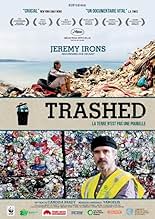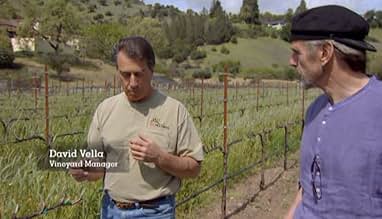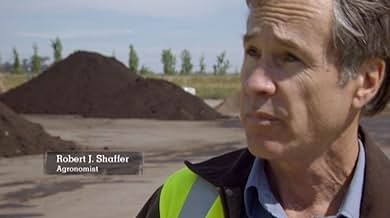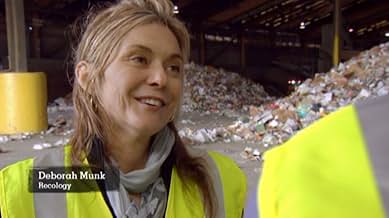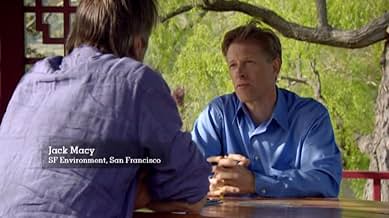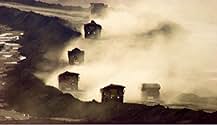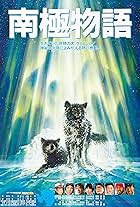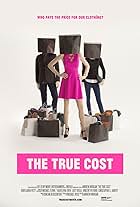Jeremy Irons sets out to discover the extent and effects of the global waste problem, as he travels around the world to beautiful destinations tainted by pollution. This is a meticulous, bra... Read allJeremy Irons sets out to discover the extent and effects of the global waste problem, as he travels around the world to beautiful destinations tainted by pollution. This is a meticulous, brave investigative journey that takes Irons (and us) from skepticism to sorrow and from horr... Read allJeremy Irons sets out to discover the extent and effects of the global waste problem, as he travels around the world to beautiful destinations tainted by pollution. This is a meticulous, brave investigative journey that takes Irons (and us) from skepticism to sorrow and from horror to hope.
- Awards
- 2 wins & 4 nominations total
- Director
- Writer
- All cast & crew
- Production, box office & more at IMDbPro
Featured reviews
Overall I felt the message was a bit muddled at times - particularly when Jeremy Irons visits the orphanages in Vietnam - and it dragged in parts. They spend an awful lot of time interviewing people involved in various incinerators around the world but the message is always the same so after a while it gets a bit boring. When they focus on the sea and the amount of plastic in it again they get different people to say the same thing which again gets a little irritating. Probably the most glaring example of this is the very beginning when it focuses on the trash mountain in Lebanon that is leaking into the sea. It alternates between long shots of the mountain, to Jeremy sitting on a trash covered beach looking pensive, then back to the mountain, then Jeremy.... I felt like standing up and going "OK I GET IT!! LET'S MOVE ON!!" Having said that, Jeremy was a great choice of protagonist as he is both engaging and humane in terms of those that he encounters, and quite funny at times too. It ends on an optimistic note which is important for these kinds of documentaries as most of the content is fairly depressing. But I feel they could easily shaved at least 20 minutes off the running time without in any way affecting the narrative.
Jeremy Irons not only narrated and starred this film, but he has been its producer as well. It is obvious from the start that he fully adopted the main "role", i.e. he bites the bullet and doggedly guides us through a maze of ignorance, complacency, cynicism, incompetence, corruption and perhaps even malevolence that resulted in a situation when mankind's mere survival is in danger due to such trivial items like plastic bags or PET bottles. He does the job, despite it means looking sad, shocked, in disbelief, or utterly disturbed most of the time. His genius sometimes shines through the polluted fog though, e.g. when he swears like a hailstorm because of some marking pegs lost by him during an environmental field project or when he politely (and mischievously) encourages a female security officer to perform a thorough personal search during a facility visit.
The movie revolves around trash that we produce unnecessarily and dump irresponsibly. This is a simple and often abused subject, but the theme re-captures your attention when you learn that a zoologist has to handle sea predator carcasses as hazardous waste due to extremely high toxic levels that accumulated from lower life forms over time -- and this is what happens to us humans as well. Yes, there is a link between plastic bags, PET bottles and dropping fertility rate of young couples. We can literally disappear in 4-5 generations. These messages are mostly well documented and just moderately "populist" -- as much as the education level of the '"average citizen" requires.
Another boon for the movie is that it goes beyond pointing out problems and shows amazingly positive best practices, like San Francisco recycling roughly three quarters of its full waste quantity, generating thousands of jobs, recuperating valuable resources and most importantly, giving hope to us whining "environmentally conscious" geeks that is CAN be done properly and somewhere it IS already done better.
Music has been composed and performed by Vangelis -- another magnificent fellow dinosaur who does not deserve going extinct.
All in all, I would certainly recommend watching this movie, and I thank the authors for making it -- which is the least I should do to someone who made efforts to save our lives.
'Trashed' is a long way from trash. Actually found it to be extremely good and that it treated an important and relevant subject with both force and tact, one of those instances of an environment-oriented documentary being completely riveting and leaving a big impression on me. Even if it didn't do much for me or wasn't my thing, there still would have been real appreciation for trying to address an issue that needs to be addressed and has needed to for a long time now and would also have admired it for its good intentions (which were apparent throughout).
Maybe a little bit more focus could have been put upon some of the solutions to the problems, but there is really not an awful lot to criticise with 'Trashed'.
Visually, 'Trashed' looks great with some really arresting images on display. There is nothing cheap about how it's shot and the scenery is striking while also unforgiving. Vangelis' haunting music adds a lot too, a perfect fit and fine music in its own right, and would not have said no to more of it.
Really admired that 'Trashed' avoided the potential problems that anything dealing with subjects like waste (same with the likes of pollution) face and have fallen into. One of the biggest potential problems would always have been preachiness, 'Trashed' makes a lot of points, while taking time to explore them fully rather than glossing over and reading like a cliff-notes list, and makes them with a lot of hard-hitting impact and really makes one contemplate long and hard after and feeling about acting upon what was learnt. Found myself very affected by the Vietnam orphanage parts. It does this though while approaching it with enough sensitivity to stop it from being heavy-handed, didn't feel talked down to at any point. It is also not speculative, the information is fully backed up and very well researched making for one educational and informative experience.
Irons is a big part of why 'Trashed' works. He has the perfect voice and delivery and comes over as immensely engaging, compassionate and sometimes amusing, could also really tell that he felt a lot of passion for the subject and knew what he was talking about. Have always admired how intelligent and passionate Irons comes over in his views and find what he says interesting and worth pondering on (regardless of what the personal stance is), and it is a shame that some of his views have in the past been taken out of context or twisted by dubious media sources that has caused some online vilification. Just for the record, he was right on the money in everything he said in 'Trashed' from personal opinion.
Summarising, extremely good. 9/10 Bethany Cox
Some reviewers complain when Irons travels to Viet Nam & India, to show horridly deformed infants & toddlers 40 YRS after USA used most lethal sulfur "agent Orange" in war & huge impact of growing city has on adjacent villages. Would same commenters state it's"merandering distraction" if the youngsters were European? Only Viet Nam & Cambodia were drowned in deadly "agent orange" & suffer long lasting adverse effects generations later, proving how sulfur remains in mammals, & birthing baby is only way female can rid of some of her sulferyrixibs stored in body.
Film also shows dead whales, orcas & dolphins are autopsied & flesh tested for types of degrading plastics & toxins. More VIP, data provirs there's literally a a toxic soupy like film covering all oceans & rivers by 2011, that remain today.
Film's Global REMEDY to accumulated steadily growing deadly trash is DAILY CONSUMER CHOICE & changing our habits . All govts deny both trash burning & burying trash In landfills causes any harm despite all science, cancers afflicting ppl, deformed culled livestock, & massive govt deemed "toxic crops/ dairy foods" ordered destroyed.
Consumer can either continue def unsustainable discard daily packaged 1 n use items, incl global cigarette butts litter, or change one's behavior.
Remedy is NOT hard to do even after Covid. Irons shows genuine inspiring examples of how different ppl in different cultures changed to become truly garbage free.
Storyline
Did you know
- TriviaNominated for Cinema for Peace Award 2013
- Quotes
Paul Connett: Some people, when they see the stack of an incinerator, the chimney, they think, "Oh, dilution, dispersion!" and forget that nature reconcentrates - reconcentrates in fish, particularly mercury, and reconcentrates with any grazing animal: sheep, pigs, goats, cows, um, chickens, and so we get all this back to us. And now just to finish that story, the huge problem here is that once we get dioxins into our body, we can't get rid of them. The man can't get rid of them. The woman has a way of getting rid of them; it's called having a baby. So she's getting the dioxin from her food every day; she can't get rid of it. It accumulates in her body fat, and when she's pregnant, the dioxin that she's accumulated for twenty-five years or so in her body now moves to the fetus. And so the effective concentration of that stuff is hugely increased in the fetus: potential to interfere with the baby's mental development, the baby's immune system, and the baby's sexual development. It's not a wise thing to do.
Details
Contribute to this page



